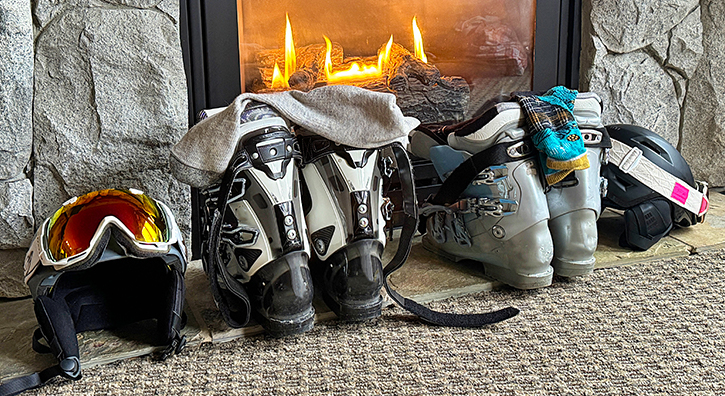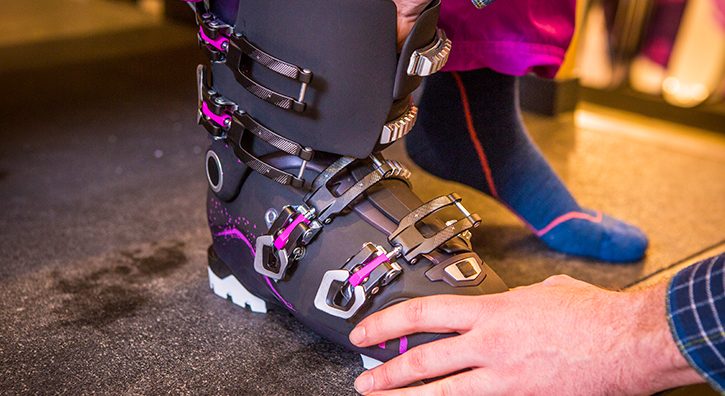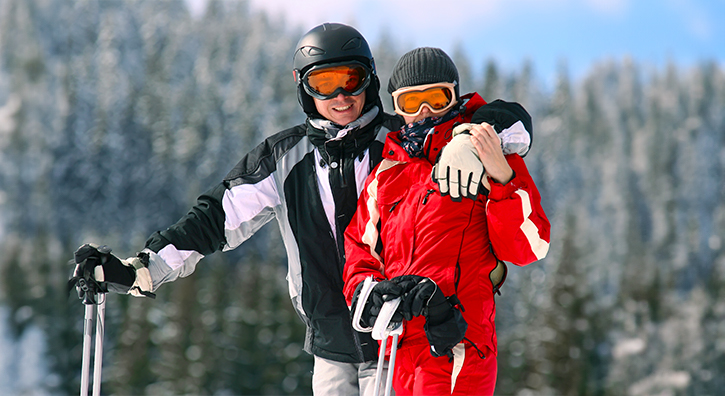0800 260 5082
Available from Monday to Friday from 9am to 7pm, and Saturday from 10am to 7pm. Closed on Sunday.
Available from Monday to Friday from 9am to 7pm, and Saturday from 10am to 7pm. Closed on Sunday.
Preparing your kids for a ski trip goes beyond booking lessons and selecting the right resort. One of the most important aspects is choosing the proper ski clothing. Children are more sensitive to cold and moisture than adults, which means their gear must be both high-performance and adapted to their needs. Whether they’re taking their first ski lesson or confidently carving down the slopes, the right outfit will keep them warm, dry, and safe. From layering essentials to thoughtful accessories, every detail counts to ensure their comfort and enjoyment throughout the day.
Find out the best destinations for your ski holidays

The base layer is the first protective shield against the cold. It’s worn directly on the skin and its primary job is to wick away moisture. Materials like merino wool or performance synthetics (such as polyester blends) help regulate body temperature and keep your child dry, even after physical exertion. Avoid cotton at all costs—it retains moisture and cools the body down.
A good mid-layer traps body heat. Depending on how cold it is, you can choose between lightweight fleece, quilted jackets, or down alternatives. The goal is to add insulation without restricting movement. Look for breathable materials that help maintain warmth while still allowing moisture to escape from the base layer.

The ski jacket and pants serve as a barrier against snow, wind, and rain. They should be waterproof, wind-resistant, and breathable. Critical features to look for include taped seams, adjustable hoods, snow skirts, and reinforced knees. Opting for bright or fluorescent colors can also make it easier to keep track of your child on crowded slopes.

Ski clothes must be designed for movement. Look for articulated knees in pants and pre-shaped sleeves in jackets, which adapt to a child’s natural motion while skiing. Adjustable waistbands and elasticated cuffs also help ensure a snug, comfortable fit that won’t shift during play or ski sessions.

Children's ski outfits often include visibility-enhancing elements like reflective strips or high-contrast colors, making them more noticeable in fog, snowfall, or low-light conditions. Safety is also about durability—reinforced fabric in impact zones like elbows and knees extends the garment's life and protects your child during falls.
Getting ready for a ski day can be chaotic—especially with kids. Choose clothes with large zipper pulls, Velcro fasteners, and elastic cuffs so your child can dress and undress with minimal help. Snow pants with adjustable straps or bibs provide extra coverage and prevent snow from entering when they fall.

Proper gloves or mittens are essential to protect small hands from frostbite and discomfort. Mittens are generally warmer for younger children as they keep fingers together. Ensure they are insulated, waterproof, and long enough to tuck under or over jacket sleeves. Wrist leashes or clips are also practical to avoid losing them.
A properly fitted helmet is non-negotiable. It should snugly cover the head without pressure points and include adjustable sizing systems. Pair it with ski goggles that fit the helmet’s shape, with anti-fog coatings and UV protection to safeguard their eyes from snow glare and wind.

Ski-specific socks made of wool or technical synthetic materials help keep feet dry and warm. Make sure they fit well and are worn without folding or creasing. For the neck, balaclavas, fleece snoods, or tube scarves offer warmth without adding bulk and prevent cold air from slipping through the jacket’s collar.